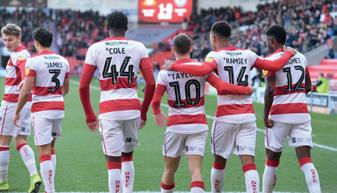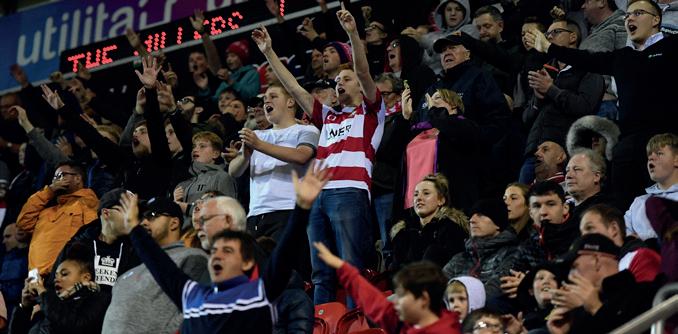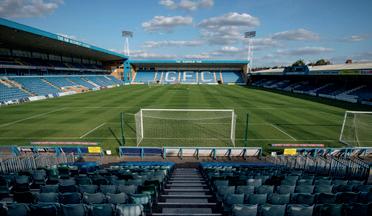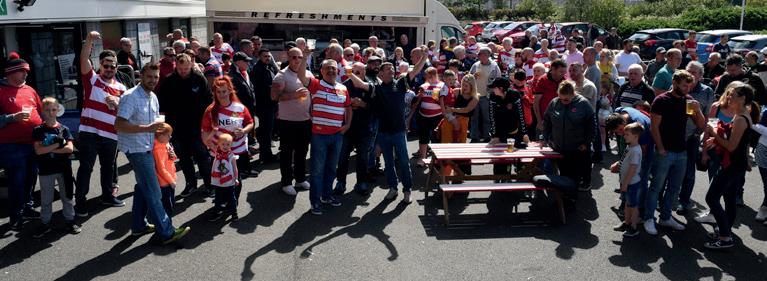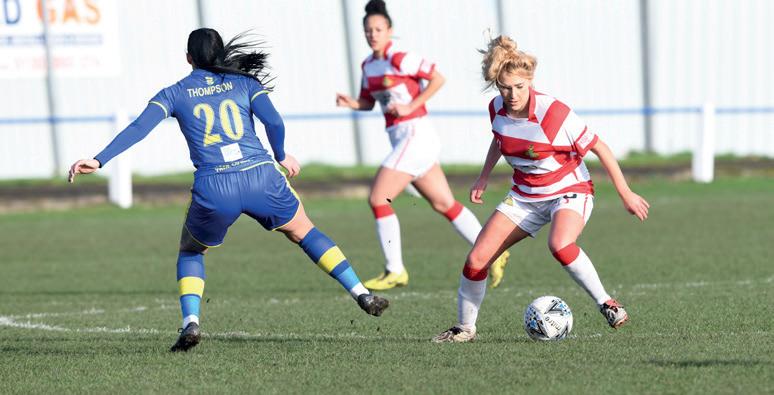
3 minute read
In the hot seat
IN THE HOT SEAT: DONCASTER ROVERS MANAGERS FROM 1920
DAVE PENNEY (2002-2006)
Advertisement
Ian Snodin’s successor was another former player, Steve Wignall, a man who had managerial experience at Aldershot, Colchester United and Stevenage Borough. He joined in May 2000 and hopes remained high that he could be the manager to take Rovers back into the Football League. Two and a half seasons further on, and progress had stalled. Wignall’s gambles on previously prolific goalscorers in Carl Alford and Justin Jackson had failed, and in January 2002 Wignall was dismissed as part of a cost-cutting exercise.
His deputy, player-coach Dave Penney, was soon appointed to the hot seat. A Yorkshireman, Penney had enjoyed a decent playing career with Derby County, Oxford United and Swansea City before joining Rovers as a player in August 1998. He soon became club captain and then moved onto the coaching side. Rovers enjoyed an improved second half of the 2001-02 season and at one point hinted at a late title push, but in the end had to settle for fourth place in the Football Conference.
Until now only the Champions of the Conference had been promoted to the Football League, but from 2002-03 another promotion place would be available via end of season play-offs. This was the incentive Rovers needed, and fired by the goals of Paul Barnes, who scored 26 times, and an excellent defence, Rovers finished third in the table. They beat Chester on penalties in a dramatic two-legged semi-final before overcoming Dagenham & Redbridge via Francis Tierney’s golden goal in the Final played at Stoke to regain their place in the Football League after five seasons.
Dave Penney’s Rovers were not finished there. Helped by Penney’s shrewd recruitment of the experienced Leo FortuneWest and Yeovil Town winger Michael McIndoe, Rovers took the Third Division by storm in 2003-04. They had sealed promotion by Easter Monday and went on to secure the title. Penney’s team enjoyed plaudits from the fans for their vibrant attacking play as well as their miserly defence which conceded only 37 goals.
Rovers were back in the third tier, the newly designated League One, for the first time since 1988. 2004-05 was largely a season of consolidation, although an excellent run towards the end of the season almost saw them sneak into a play-off place. In contrast, Rovers struggled at the start of 2005-06 but enthralled supporters with an excellent run in the League Cup. First Manchester City were dispatched on penalties, then Rovers totally outplayed another Premier League side, Aston Villa, to win 3-0. This set up a home quarter-final against Arsenal, and in stoppage time of extra-time Rovers were leading 2-1 until a breakaway goal by the Londoners forced a shoot-out, which Rovers lost.
Rovers finished 2005-06 in a respectable 8th place, but with expectations raised, 2006-07 was going to be a big season. Several new signings were made, but Rovers struggled to gel on the field while there were rumours of unrestbehind the scenes. Matters came to a head at the end of August, when Rovers had won only one of five League games. Penney and his assistant Mickey Lewis were dismissed, and the reign of one of Rovers’ most popular managers was over.
Dave Penney’s record at Rovers should never be forgotten. He revived a club that seemed to be treading water in 2002, took it to two promotions and on a memorable cup run. Maybe he had taken Rovers as far as he could by 2006, but he deserves to be remembered as one of our greatest managers.
SENIOR RECORD
FIRST MATCH: 12th January 2002 v Harrogate Town (home) won 2-0 (FA Trophy)
LAST MATCH: 26th August 2006 v AFC Bournemouth (home) drew 1-1
PLAYED 237
WON 114
DREW 56
LOST 67
WINNING PERCENTAGE: 48.1% 19

